SCENE DE MENTHE: Hanahan photographer Charles Boyd was having a drink several years ago in mid-March at the Mills House when he heard a high-spirited crowd wander into Hibernian Hall next door. He snapped the hall, aflood with green. It’s a timely picture with St. Patrick’s Day festivities set to turn the town green on Sunday. Thanks, Charles! And happy early St. Patrick’s Day, all!
IN THIS EDITIONFOCUS: Ahoy! It’s Navy Week in Charleston
COMMENTARY, Brack: Lots to do if General Assembly wants real impact
IN THE SPOTLIGHT: Morris Financial Concepts
GOOD NEWS: The Pearl to open March 13
FEEDBACK: Mace needs constitutional reminder on ERA effort
MYSTERY PHOTO: What a great Lowcountry home
S.C. ENCYCLOPEDIA: Reconstruction (part 2 of 2)
CALENDAR: From fashion to music and drama
FOCUSFOCUS: Ahoy! It’s Navy Week in Charleston
Staff reports | America’s Navy sets sail for Charleston starting today Saturday with a bevy of Navy Week activities through Saturday.
As part of Charleston Navy Week are two free performances by the U.S. Fleet Forces Band at the College of Charleston.
Woodwind Quintet: 7 p.m. March 13, College of Charleston, Simons Center for the Arts Recital Hall, 54 St. Philip Street, Charleston. U.S. Fleet Forces Band. The quintet will perform with special guest artist, Charleston Mayor John Tecklenburg.
Brass Band: 4 p.m. on Thursday, March 14, College of Charleston, Cistern Yard, Charleston . The Navy’s brass band will perform
Navy Week is an opportunity for Charleston to embrace the rich naval heritage of the Lowcountry, which has long had a significant Navy presence, particularly prior to the closure of the Charleston Naval Base and Charleston Naval Shipyard in the mid-1990s.
One of the local hosts for Navy Week is Navy Rear Adm. Daniel Fillion, who earned a bachelor’s degree in business in 1984 at the College of Charleston.
More events
City proclamation: March 11, Patriot’s Point in Mount Pleasant. Tecklenburg will present a city proclamation to Fillion. Sailors from the newly-commissioned USS Charleston will also be on hand. Fillion is a native of Goose Creek. He has served as an aviator in multiple helicopter squadrons, as the navigator on the aircraft carrier USS Nimitz and as the commanding officer of the USS Wasp. He has received numerous accommodations for his service, including the Defense Superior Service Medal and on three occasions the Legion of Merit.
First pitch. Fillion will throw out the first pitch before the College of Charleston’s Cougar baseball team faces Charleston Southern University at CSU’s Neilson Field in North Charleston at 5:45 p.m. on March 13. The game will feature Navy-themed events, including a performance by the U.S. Fleet Forces Band.
Charleston Museum event. The Charleston Museum will welcome the Naval History and Heritage Command (NHHC) and the USS Constitution for Navy Week 9 a.m. to- 4:30 p.m. March 14. Representatives from the NHHC will be on site to provide educational resources to visitors in celebration of Navy Week. Crew members from the USS Charleston will also be at The Charleston Museum from 9 a.m. to 10:30 a.m. to talk about the city’s brand-new namesake vessel. More info.
Parade. Charleston Navy Week concludes with Navy participation in the Charleston’s St. Patrick’s Day parade on March 16.
- Have a comment? Send to: editor@charlestoncurrents.com
BRACK: Lots to do if General Assembly wants real impact
By Andy Brack, editor and publisher | With two months left, the General Assembly still has a lot of work to do if it really wants to accomplish anything this year.
 Despite headlines of progress, lawmakers of both chambers have passed five pretty minor bills, four of which became law. Gov. Henry McMaster vetoed a measure on the election of water and sewer district commissioners for Bath, Langley and Clearwater (wherever they are).
Despite headlines of progress, lawmakers of both chambers have passed five pretty minor bills, four of which became law. Gov. Henry McMaster vetoed a measure on the election of water and sewer district commissioners for Bath, Langley and Clearwater (wherever they are).
So here’s a rundown of what the House and Senate could do if they passed major legislation being batted around the Statehouse. Otherwise, the inertia of the status quo will continue to win.
At the top of everyone’s list this year is reforming the state K-12 education system. The S.C. House took a big step this week to move the ball forward by passing a bill that originally was 84 pages long. Amended in committee and on the floor, the bill being pushed hard by House Speaker Jay Lucas is O.K., but it’s half a haircut if there is to be real reform. To wit:
Teacher pay. The bill calls to pay new teachers more. Existing teachers? The legislature will have to take up increasing their pay in the annual state budget, now at more than $9 billion. Everybody is talking a good game about paying all teachers more, but if lawmakers don’t use a good chunk of recurring surplus funds to give state teachers a big pay hike and stop the drain of their talents from state schools, all of Lucas’s reform will be for naught.
Accountability. The Lucas bill rightly pushes to allow the state superintendent of education to have more of a say in fixing failing schools and to stop the near-incessant standardized testing of students. Instead of more tests, we need more hours of instruction without all of the red tape.
Student cost. Unfortunately, the House bill gets rid of an old metric for gauging how the state is spending money on students. The “base student cost” is a mandated formula on how much to spend on each pupil. In the new bill, that cost is wrapped into a new metric, “per pupil spending,” which also includes teacher spending. Redefining how much is being spent makes it look like more overall, but we’re told if you separate the old base student cost, funding actually will drop overall by $18 per student — a loss of more than $12 million dollars. We hope the Senate will continue to use the “base student cost” measure for education spending so education advocates can keep up with how proposed spending actually compares to past years’ spending. (Note: For just about the last decade, state lawmakers have underfunded K-12 base student cost to the tune of more than $4 billion. Changing the definition may let them continue to get away with it.)
There are other important proposals before state lawmakers:
Medical marijuana. There’s a big push for the Senate to approve medical uses of marijuana to ease pain and suffering for many in the state. While state Sen. Tom Davis, R-Beaufort, may be able to get it through the Senate, the House — particularly legislators from the red hat of Upstate districts — will be hard-pressed to vote for marijuana after almost 50 years of “just say no” rhetoric.
Charleston loophole. State legislators need to stop fiddling and close the “Charleston loophole” so people who shouldn’t have guns don’t get them.
Solar energy. The House has approved a bill that promotes the continued growth of residential solar energy. The Senate needs to do the same quickly, or risk losing thousands of good jobs.
Santee Cooper. The brakes are on efforts to sell the state-backed Santee Cooper utility. Good. There’s no point of selling a great resource at a bargain basement price. Hold on to it, restructure it and make it more efficient.
Ban on plastic bag bans. It makes no sense for the party of limited, more local government, the Republican Party, to be bashing local governments that want to keep their communities cleaner by banning plastic bags.
New voting machines. The state’s current machines are far too old. Lawmakers need to spend appropriately to get new machines with paper trails so voters can track their ballots.
- Have a comment? Send to: editor@charlestoncurrents.com
SPOTLIGHT: Morris Financial Concepts, Inc.
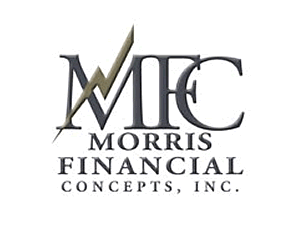 The public spiritedness of our sponsors allows us to bring Charleston Currents to you at no cost to readers. Morris Financial Concepts, Inc., is a nationally recognized, fee-only financial consulting firm that helps you identify and align your resources, values and goals to achieve an enriched life.
The public spiritedness of our sponsors allows us to bring Charleston Currents to you at no cost to readers. Morris Financial Concepts, Inc., is a nationally recognized, fee-only financial consulting firm that helps you identify and align your resources, values and goals to achieve an enriched life.
We do not accept commissions or compensation related to the products and service we recommend. Our counsel is based solely on what we believe is best for each client.
- Learn about founder and Charleston Currentscolumnist Kyra Morris and more about the consultancy at: Morris Financial Concepts, Inc.
- To meet all of our underwriters, click here.
The Pearl to open March 13 in West Ashley
Staff reports | The grand opening of the Pearlstine Theatre, Charleston Stage’s 130-seat space in West Ashley that will be known as “The Pearl,” is set for March 18.
A special grand opening performance will feature music by Charleston Mayor and jazz pianist John Tecklenburg as well as tunes from the Hungry Monks and the Plantation Singers. There will be offerings by Charleston Stage’s resident professional acting company and members of Charleston Stage’s 8th and 9th Grade Performance Troupe featuring clarinet player Julie Mathias.
The show benefits Charleston Stage’s education programs, which reach more than 18,000 Lowcountry students every year.
- Tickets for the show, which will be at 1401 Sam Rittenberg Boulevard in Charleston, cost $175 per person with several other prices. Cocktails start at 6:30 p.m. with the show starting an hour later.
Also in Good News:
![]() New location. Fox Music House marked 90 years in business with a grand opening celebration at its new location at 4248 Dorchester Road. The opening program featured a ribbon-cutting and remarks from North Charleston Mayor Keith Summey and Charleston Mayor John Tecklenburg, as well as remarks by Fox Music executives Charles Fox, Joan Fox and Joseph Fox. The new 22,000 square foot sales floor features Yamaha, Seiler, Steinway and more than 110 new and used pianos and organs. A space is also designated for events with staging/production, a recording studio, and nine teaching rooms operated by Black Tie Music Academy. Fox Music House now officially is the oldest and largest Yamaha retail storefront on the East Coast.
New location. Fox Music House marked 90 years in business with a grand opening celebration at its new location at 4248 Dorchester Road. The opening program featured a ribbon-cutting and remarks from North Charleston Mayor Keith Summey and Charleston Mayor John Tecklenburg, as well as remarks by Fox Music executives Charles Fox, Joan Fox and Joseph Fox. The new 22,000 square foot sales floor features Yamaha, Seiler, Steinway and more than 110 new and used pianos and organs. A space is also designated for events with staging/production, a recording studio, and nine teaching rooms operated by Black Tie Music Academy. Fox Music House now officially is the oldest and largest Yamaha retail storefront on the East Coast.
Little Black Dress. The Junior League of Charleston will hold its 2019 Little Black Dress Initiative on March 11 to March 15 as a week-long advocacy initiative that uses the iconic “little black dress” to raise awareness of the less fortunate. The organization hopes to raise $20,000 as members wear the same black dress for five consecutive days to illustrate the lack of resources many women face due to financial hardship. Visit www.jlcharleston.org to find out more information. Among the events:
March 12 : Percentage Night at Charles Towne Fermentory, 809 Savannah Highway Charleston
March 14, 5 p.m. to 7 p.m.: Shot and support at Ivy Rowe, where 10 percent of proceeds will be donated. 3 Vincent Dr. #101, Mount. Pleasant.
Quest awards. Some 1,400 students from 42 public schools throughout Berkeley, Charleston and Dorchester counties battled for top honors at the 33rd Annual Quest Academic Competition, which was held Saturday at Trident Technical College Thornley Campus in North Charleston.
Students, who competed in our levels from grades 6 to 12, earned points in team competitions in math, science and social studies, and in individual competitions including composition, public speaking and visual arts. Special competitions were held in automotive, computer aided design, computer programming, culinary, engineering design and construction, horticulture, Spanish, video/film and welding. Schools whose students earned the most total points won overall awards at each level.
Overall awards were given to 15 schools. At Level I (grade 6), Camp Road Middle School won first place, Thomas C. Cario Middle School placed second and DuBose Middle School finished in third place. At Level II (grades 7-8), Moultrie Middle School took top honors, while Rollings Middle School of the Arts placed second and Palmetto Scholars Academy finished third. At Level III (grades 9-10), Academic Magnet High School claimed first place with Hanahan High School in second. There was a four-way tie for third place between Fort Dorchester, James Island Charter, Philip Simmons and Wando high schools. At Level IV (grades 11-12) Ashley Ridge High School won first place with Wando and Stratford high schools finishing in second and third places, respectively.
Big gift. A big community thanks to Susu and George Dean Johnson Jr. of Spartanburg, who last week donated $1 million to support the creation of the International African American Museum. Founders of The Johnson Collection, a nationally-renowned collection of art from the American South, the couple has a longstanding interest in advancing the study and appreciation of African American culture.
Budget debate. The House will begin debating the state’s $9.3 billion budget today on the floor. House members aren’t expecting it to take too long to pass — Tuesday or Wednesday could be the day they wrap up, sources said. They give credit to freshman budget writer Rep. Murrell Smith, R-Sumter, for working with many other lawmakers and stakeholders during the budget process.
FEEDBACKMace needs constitutional reminder on ERA effort
To the editor:
![]() Re: Brack: 2/25: When being last can do some good
Re: Brack: 2/25: When being last can do some good
Obviously, Ms. [S.C. Rep. Nancy] Mace has forgotten or chooses not to remember, that it was a woman, Shannon Faulkner, who had to fight her way into being accepted as the first woman admitted to The Citadel from where Ms. Mace graduated.
I would remind Ms. Mace that at the time, we had the 14th Amendment, which did little to pave the way for Ms. Faulkner being eventually accepted. Therefore, it is apparent that we still need the Equal Rights Amendment for all women to be treated equally “under the law.”
— Margaret Fabri, James Island, S.C.
Tell us what you think
We’d love to get your impact in one or more ways:
Send us a letter: We love hearing from readers. Comments are limited to 250 words or less. Please include your name and contact information. Send your letters to: editor@charlestoncurrents.com. | Read our feedback policy.
Tell us what you love about the Lowcountry. Send a short comment – 100 words to 150 words – that describes something you really enjoy about the Lowcountry. It can be big or small. It can be a place, a thing or something you see. It might the bakery where you get a morning croissant or a business or government entity doing a good job. We’ll highlight your entry in a coming issue of Charleston Currents. We look forward to hearing from you.
MYSTERYMYSTERY: What a grand Lowcountry home
Now a private residence, this house has particular significance, according to a reader who submitted the picture. Two-part mystery this week: Where is the house and what is its significance. Send your guess to feedback@statehousereport.com. And don’t forget to include your name and the town in which you live.
Our previous Mystery Photo
 Our March 4 mystery, “There’s a big clue in this mystery,” was the perfect pre-St. Patrick’s Day photo. It showed Hibernian Hall on Meeting Street in Charleston (the harp with the green background was the clue).
Our March 4 mystery, “There’s a big clue in this mystery,” was the perfect pre-St. Patrick’s Day photo. It showed Hibernian Hall on Meeting Street in Charleston (the harp with the green background was the clue).
A warm congratulations to all who correctly identified the mystery: Chris Brooks of Mount Pleasant; Stephen Yetman, now of Savannah; Cynthia Jones of York; Margaret Fabri and Archie Burkel, both of James Island; George Graf of Palmyra, Va.; and Pat Deussing of Apex, N.C.
Fabri added, “The Irish Harp was sort of a ‘giveaway.’ This is the Hibernian Hall…the home of the famous St. Patrick’s Day party to which NO WOMEN are allowed!”
Burkel outlined the importance of the harp: “Always known as a symbol of ‘Irishness,’ the harp became a symbol for the resistance of Irish people against the Crown of England. That is why it was banned by the Crown by the end of the Middle Ages. Today many Irish companies and institutions use the harp in their logos and emblems. like our Hibernian Hall. It was originally built as a meeting place for the Hibernian Society, an Irish benevolent organization founded in 1801. It has continued to have an illustrious history befitting our illustrious Charles-town.”
Graf noted, “The Hibernian Society of Charleston was created to help Irish settlers following the 1798 rebellion. It is the oldest organization of ethnic origin with its own site in the country,” according to charlestoncitypaper.com. He also added, according to revolvy.com, “the first floor [in 1860] was used as a meeting space, and the second floor as living quarters for the delegates, who slept on hundreds of cots set up for the occasion. No one Democratic candidate could garner sufficient support. The party’s divisiveness contributed to the election of the Republican candidate, Abraham Lincoln.”
- Send us a mystery: If you have a photo that you believe will stump readers, send it along (but make sure to tell us what it is because it may stump us too!) Send it along to editor@charlestoncurrents.com.
HISTORY: Reconstruction
S.C. Encyclopedia, Part 2 of 2 | Most white South Carolinians never admitted the legitimacy of the Republican government. Claiming that Republican leaders lacked the wealth, education, and intelligence to govern the state, the former planter-elite derided their opponents in vituperative and bitter language.
Often they did worse. Organizations such as the Ku Klux Klan were formed to intimidate Republicans, especially Republican leaders; they whipped or beat hundreds of victims and murdered scores. Some of those killed were Republican legislators, such as Solomon Dill, Benjamin Franklin Randolph, and James Martin, all assassinated in 1868. From that year until 1871 South Carolina Republicans operated in a climate of terror. Some were able to defend themselves; others were able to move. Most had to be vigilant and try to stay one step ahead of the Ku-Klux, as it was then called. Almost all Republicans had the experience of spending nights in the woods to avoid attack.
President Ulysses S. Grant, elected in 1868, was much more sympathetic to Congress’s view of Reconstruction than Johnson had been. In 1871 Grant’s administration undertook an extensive effort to crack down on terrorism, and South Carolina in particular was under scrutiny. Congress passed the Ku-Klux Act, making it a federal crime to “conspire or go in disguise . . . for the purpose of depriving . . . any person or class of persons of the equal protection of the laws.”
Nine upcountry counties were placed under martial law, and hundreds of arrests were made. Convictions were few since the federal prosecutors were overwhelmed by the number of cases and since most of the attacks had occurred before the passage of the Ku-Klux Act. Federal intervention certainly reduced the scale of terrorism, and the Ku-Klux as an organization was destroyed as many of its leaders fled the state. Nevertheless, the government’s assault on political violence was not a complete success. Attacks on leading Republicans continued throughout Reconstruction and beyond.
White Democrats often claimed that violence was a response to corrupt government, simple chronology disproves this assertion— terrorism began well before the first frauds were committed—but it was accepted as truth by much of the northern press. Perhaps the most important example is the reporting of James S. Pike, first in the pages of the New York Tribune and then in a widely read book, The Prostrate State. In the book, Pike portrayed the South Carolina government as a sink of corruption and ignorance, and he placed the blame squarely on blacks. Most of his accusations were unfair and many were entirely fictitious, but the northern public believed them. Such writings undermined northern will to maintain the southern Republican governments in power.
White Democrats attempted to achieve some level of influence in state politics by several means. In the 1870, 1872, and 1874 elections, they joined with disaffected Republicans to create fusion tickets. These all went down to failure, but the last one did increase the number of Democrats in the legislature and in some county governments. In 1871 and 1874 they orchestrated “Taxpayers’ Conventions,” which met to decry the government’s extravagance and investigate its finances; these too had only limited results.
The means by which they recaptured the state was simply the assertion of force. This strategy, pioneered in 1875 by Mississippi whites, was put into effect in 1876. In the election of that year, the Democrats ran a full statewide ticket for the first time since 1868. Wade Hampton III, South Carolina’s highest-ranking Confederate officer, accepted the nomination for governor, and the other Democrats on the ticket were also former Confederates. The Democrats used a dual strategy: Hampton portrayed himself as a moderate and made appeals for black support, while his lieutenants practiced strong-arm tactics of intimidation and violence. Combined with massive fraud, the strategy propelled the Democrats to victory, at least on the face of the returns; but the returns were clearly fraudulent.
Hampton and the Republican incumbent, Daniel H. Chamberlain, each claimed to be governor. Both parties claimed control of the state legislature. And both parties claimed to have carried the state for their candidates in the 1876 presidential election. Republican Rutherford Hayes was awarded the presidency by a bipartisan election commission, but after meeting with Hampton and Chamberlain he decided not to use federal power to protect Chamberlain’s government.
Chamberlain knew that spelled the end of Republican government in South Carolina. Hampton commanded the loyalty of almost all white South Carolinians, giving him the largest taxpayers of the state and a superior military force of trained Confederate veterans. Chamberlain resigned in April 1877, thus ending Reconstruction in South Carolina. With the Democrats in control of the state, the election system was altered to prevent most blacks from voting. By the 1890s there were almost no black or Republican officeholders in the state, a condition that continued for more than half a century.
— Excerpted from an entry by Hyman S. Rubin III. This entry may not have been updated since 2006. To read more about this or 2,000 other entries about South Carolina, check out The South Carolina Encyclopedia, published in 2006 by USC Press. (Information used by permission.)
ON THE CALENDARCALENDAR: From fashion to music and drama
![]() There are lots of great things going on in the area. Ahead on the calendar:
There are lots of great things going on in the area. Ahead on the calendar:
Reimagined Fashion: 5:30 p.m., March 14, Charleston Museum, 360 Meeting St., Charleston. The Charleston Museum, in partnership with Charleston Shop Curator, will present this pop-up exhibit and reception that blends the museum’s textiles collection with modern Southern design. Each designer has worked closely with the Museum’s Curator of Historic Textiles, Teresa Teixeira, to create a completely original look inspired by and using pieces dating back nearly 200 years. Tickets are $45 to $55. More information and purchase link.
Events at the Gaillard. Check out these awesome coming events at the Charleston Gaillard Center, 95 Calhoun St., Charleston:
March 14, 7:30 p.m.: Masquerade with Dimitri Pittas, Leah Edwards and the Charleston Symphony Orchestra
March 21, 7:30 p.m.: Tap Dogs, a high-voltage performance of top tap dance talent that has taken the world by storm.
March 29 and 30, 7:30 p.m.: Mozart’s Requiem, performed by the Charleston Symphony Orchestra with the CSO Chorus.
Steel Magnolias: Several shows, through March 24, Dock Street Theater, 135 Church St., Charleston. Charleston Stage will present Steel Magnolias, one of the most produced comedies in America, for three weeks with resident actors to the delight of area audiences. Truvy, Ouiser, Clairee, M’Lynn, Annelle, and Shelby have gathered once again at Truvy’s Beauty Parlor to primp, gossip, and spar with one another. As hair is teased, blow-dried, and permed, the comic sparks fly in this hilarious and beloved classic Southern comedy. Tickets available online 24/7 at www.charlestonstage.com. Or by calling (843) 577-7183.
Great jazz: 7:30 p.m., March 11, Recital Hall, Simons Center for the Arts, 54 St. Philip St., Charleston. The 2nd Monday Series at the College of Charleston School of the Arts will present the CofC Faculty Jazz Ensemble: Robert Lewis (saxophones), David Heywood (flute), Tyler Ross (guitar), Gerald Gregory (piano), Quentin Baxter (drums) and Frank Duvall (bass). The group will perform jazz standards, arrangements and originals. Directed by Robert Lewis, Jazz Studies in the College’s Department of Music is one of the most prominent music programs in the area and includes instruction by some of the best jazz performers of the South. Admission is $15 general / $10 students. More information is available at music.cofc.edu/concerts/2nd-Monday-series.
Colour of Music Festival: March 27 to March 30 at three locations in downtown Charleston. This year’s festival will showcase leading black classical artists from France, Britain, Colombia, and the Caribbean and highlighting the musical achievements of lesser known black female composers including Florence B. Price. Tickets are $15 to $45/ Click here to see schedule and learn more about ticketing.
The City Luminous exhibition: March 30 to May 5, City Gallery, 34 Prioleau Street, Joe Riley Waterfront Park, Charleston. The City of Charleston Office of Cultural Affairs will present The City Luminous: Architectures of Hope in an Age of Fear. Curated by the two College of Charleston professors, the exhibition assembles architectural installations and images designed to suggest a hopeful way forward for the world’s fractured communities.
Lowcountry Cajun Festival: Noon to 6 p.m., April 7, James Island County Park, James Island. The 28th annual festival returns with a full day of Zydeco music, authentic Cajun and Creole food, children’s activities and more! Charleston’s best Cajun restaurants, caterers and food trucks will cook up a variety of delicious foods. For a band line-up and more, visit: CharlestonCountyParks.com.
Early morning bird walks at Caw Caw: 8:30 a.m. every Wednesday and Saturday, Caw Caw Interpretive Center, Ravenel. You can learn about habitats and birds, butterflies and other organisms in this two-hour session. Registration not required, but participants are to be 15 and up. $10 per person or free to Gold Pass holders. More: http://www.CharlestonCountyParks.com.
AREA FARMERS MARKETS
SATURDAYS: Johns Island Farmers Market operates each Saturday from 9:30 a.m. to 1:30 p.m. year-round with more than 50 local farmers and vendors, food trucks, music and more. The market is located on the campus of Charleston Collegiate School, 2024 Academy Road, Johns Island.
- If you have an event to list on our calendar, please send it to feedback@charlestoncurrents.com for consideration. The calendar is updated weekly on Mondays.
If you like what you’ve been reading, how about considering a contribution so that we can continue to providing you with good news about Charleston and the Lowcountry. Interested? Just click the image below.
ABOUT CHARLESTON CURRENTSOUR UNDERWRITERS
Charleston Currents is an underwriter-supported weekly online journal of good news about the Charleston area and Lowcountry of South Carolina.
- Meet our underwriters
- To learn more about how your organization or business can benefit, click here to contact us. Or give us a holler on the phone at: 843.670.3996.
OUR TEAM
Charleston Currents offers insightful community comment and good news on events each week. It cuts through the information clutter to offer the best of what’s happening locally.
- Mailing address: O. Box. 22261 | Charleston, SC 29413
- Phone: 670.3996
Charleston Currents is provided to you weekly by:
- Editor and publisher: Andy Brack, 843.670.3996
- Contributing editor, common good, Fred Palm
- Contributing editor, money: Kyra Morris
- Contributing editor, Palmetto Poem: Marjory Wentworth
- Contributing editor, real estate: Digit Matheny
SUBSCRIBE FOR FREE
Subscriptions to Charleston Currents are free.
- Click here to subscribe.
- We don’t want to lose you as a reader of Charleston Currents, but if you must unsubscribe, you will have to do it through the email edition you receive. Just go to the bottom of any of your weekly newsletters and click the “unsubscribe” function. If that doesn’t work, please send us an email with the word “unsubscribe” in the subject line.
© 2008-2019, Statehouse Report, LLC. All rights reserved. Charleston Currents is published every Monday by Statehouse Report LLC, PO Box 22261, Charleston, SC 29413.


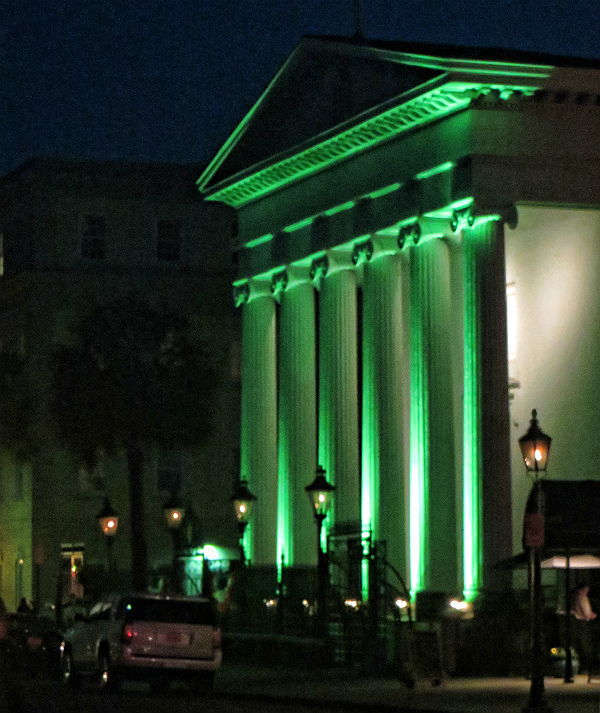

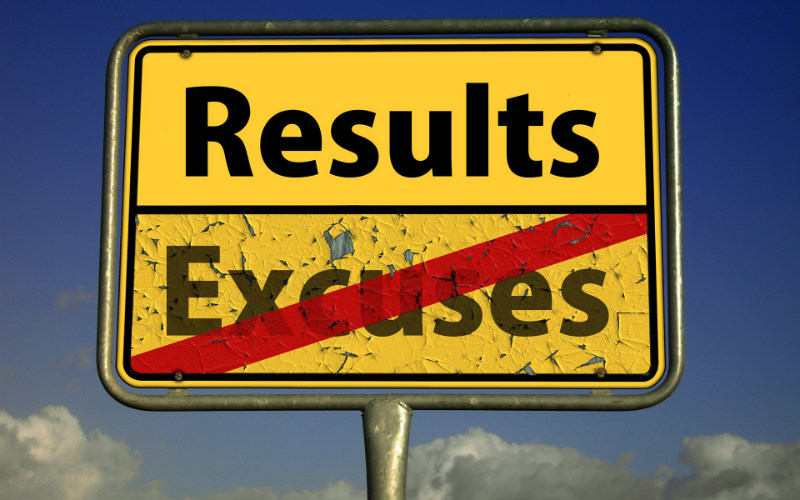
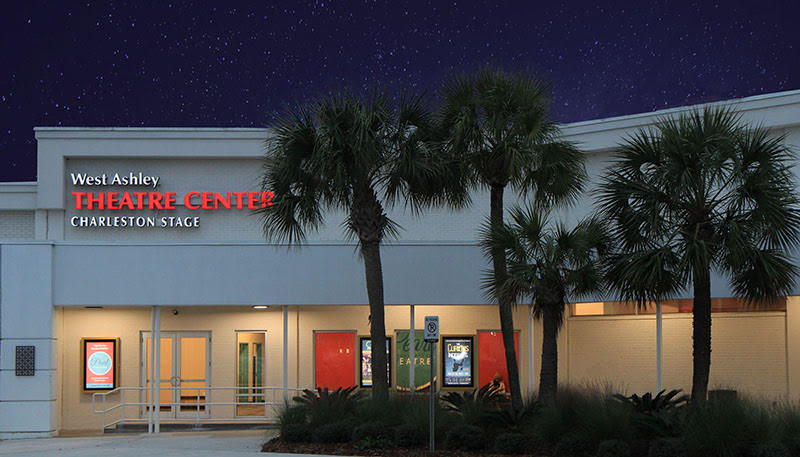
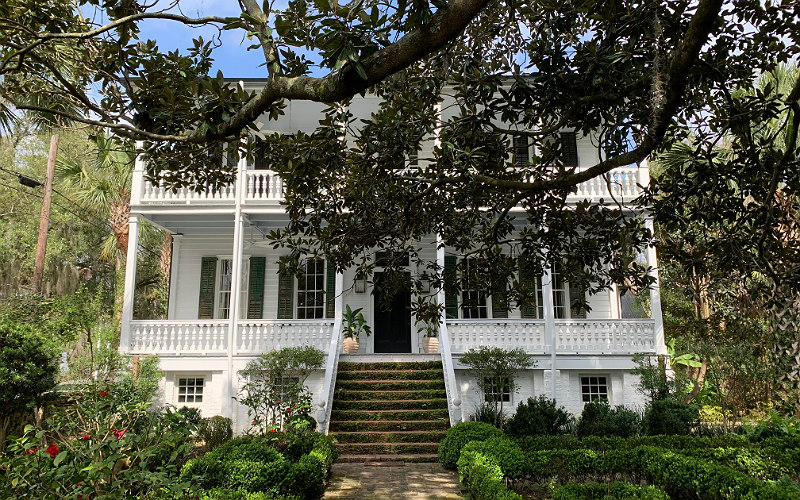
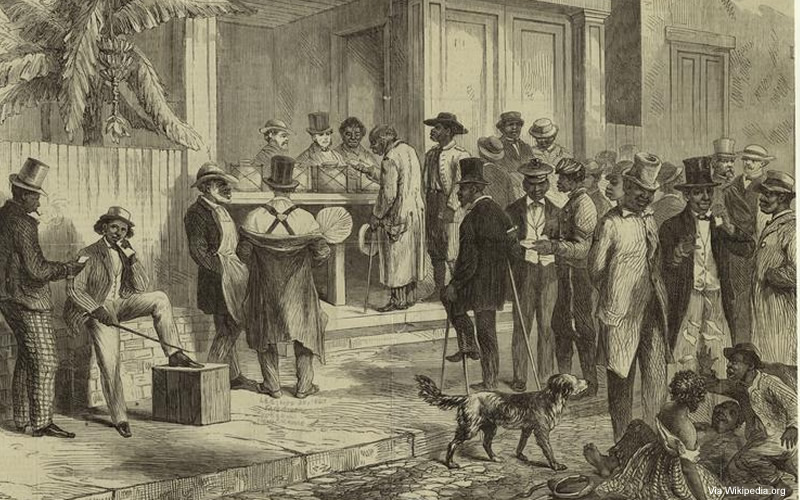

 We Can Do Better, South Carolina!
We Can Do Better, South Carolina!
























